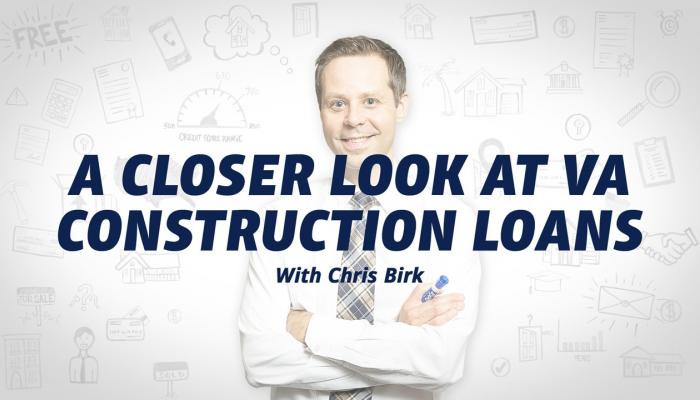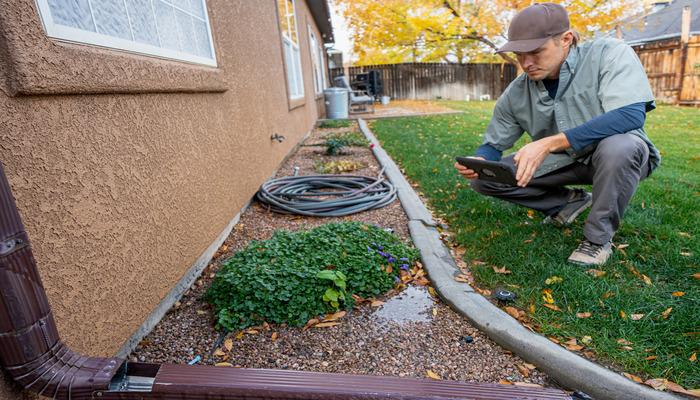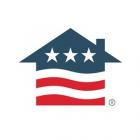Once you reach retirement age, it's common to re-evaluate your financial situation and look for ways to secure your cash flow.
If you’re a Veteran or a surviving spouse, you may have seen ads for VA reverse mortgage loans and wondered if you could benefit from this process to tap into your home’s equity.
Here are some important facts you need to know before making any decisions.
What is a Reverse Mortgage?
A reverse mortgage is a type of loan that is available to borrowers aged 62 and older who own their home and have significant equity in it. These loans allow you to borrow against the value of your home and receive a lump sum of cash, a line of credit or a fixed monthly payment.
Unlike other types of loans, a reverse mortgage doesn’t require any loan payments. Instead, the entire loan balance is due when the borrower sells the home, permanently moves out or passes away. There are protections in place to ensure that the loan balance won’t exceed the value of the home, and if it does, neither the borrower nor the borrower’s estate will be held responsible for paying the excess balance.
This can be an attractive proposition for older homeowners who need an influx of cash and don’t want to worry about making monthly payments. It can also be ideal for those who want to eliminate their current mortgages while staying in their homes.
Does the VA Offer Reverse Mortgages?
You may have seen ads that imply the availability of “no payment” reverse mortgages for Veterans. But these ads are slightly misleading. The VA does not offer reverse mortgages or provide approval for any reverse mortgage program. However, there may be conventional reverse mortgages that are targeted towards Veterans.
Alternatives to the VA Reverse Mortgage
If you’re looking for a way to tap into your home equity and you want to take advantage of a VA loan’s competitive terms, a VA cash-out refinance loan may be a viable alternative to a reverse mortgage. This option allows you to refinance your current mortgage with a new VA loan.
The new mortgage will have its own terms and have a higher payoff amount than what you owe on your current loan. When you close on the loan, you’ll receive the excess amount as a lump sum of cash.
Pros and Cons of a VA Cash-Out Refinance
When deciding whether a VA cash-out refinance is right for you, there are some important pros and cons to consider. Here’s a look at a few of the most important.
» MORE: Start your VA cash-out refinance
Access to Cash
A VA cash-out refinance allows you to borrow up to 100% of your home’s market value. You can access the difference between what you owe and your home’s value as a lump sum of cash when you close on your new loan.
Ability to Build Equity
As you make payments to your lender, you will continue to build equity in your home. This can increase your profits when you sell.
Closing Costs and Fees
Borrowers are required to pay an upfront, one-time VA funding fee that ranges between 2.15% and 3.3% of the loan amount.
Eligibility Requirements
You must be eligible for a VA loan and meet your lender’s requirements regarding your credit score and debt-to-income ratio (DTI). You also must have a home appraisal, have had no late payments in the last 12 months, and occupy the home as your primary residence.
» CALCULATE: Calculate your VA Loan savings
Monthly Payments
A cash-out refinance still requires you to make monthly payments to your lender. If your goal is to eliminate your mortgage payments, this strategy will not work.
VA Home Loan Payment Calculator
Pros and Cons of Reverse Mortgages
Reverse mortgages can be beneficial for some homeowners, but they are not without some potential drawbacks. Take a look at these important pros and cons.
No Monthly Mortgage
When you take out a reverse mortgage, you no longer have to worry about making monthly mortgage payments or the possibility of the lender foreclosing on your home.
Flexible Options for Access to Cash
A reverse mortgage allows you to access your home's equity as a lump sum, monthly payments or a line of credit.
Equity Depletion
Each payment you receive from your reverse mortgage depletes the equity in your home, lowering the amount you could leave as an inheritance.
Mortgage Insurance
The FHA requires mortgage insurance for reverse mortgages. This includes an upfront cost of 1.75% of the total amount borrowed and an annual mortgage insurance premium of 0.55% of the amount borrowed.
Can You Refinance a Reverse Mortgage with a VA Loan?
If you already have a reverse mortgage, it is possible to refinance it. You may want to do this to change the existing loan terms or to switch to a different type of mortgage. Refinancing back to a traditional mortgage can allow you to preserve the remaining equity in your home or avoid having to sell the home to pay off the loan.
If you are eligible for a VA loan, meet all VA and lender requirements, and are living in the home as your primary residence, you may be able to apply for a VA loan to refinance your reverse mortgage.
Related Posts
-
 VA Construction Loans: How to Build a Home with a VA LoanBuilding your dream home is a possibility with a VA home loan. But it isn’t always an easy road. Here we take a deep dive into VA construction loans and how you can build a home with a VA loan.
VA Construction Loans: How to Build a Home with a VA LoanBuilding your dream home is a possibility with a VA home loan. But it isn’t always an easy road. Here we take a deep dive into VA construction loans and how you can build a home with a VA loan. -
 VA Appraisal RequirementsExplore everything a homebuyer needs to know about the VA appraisal, including the process, property requirements, pitfalls, termite inspections, water quality checks, appraisal fees, challenging a low appraisal and the differences between the VA appraisal and a home inspection.
VA Appraisal RequirementsExplore everything a homebuyer needs to know about the VA appraisal, including the process, property requirements, pitfalls, termite inspections, water quality checks, appraisal fees, challenging a low appraisal and the differences between the VA appraisal and a home inspection.


